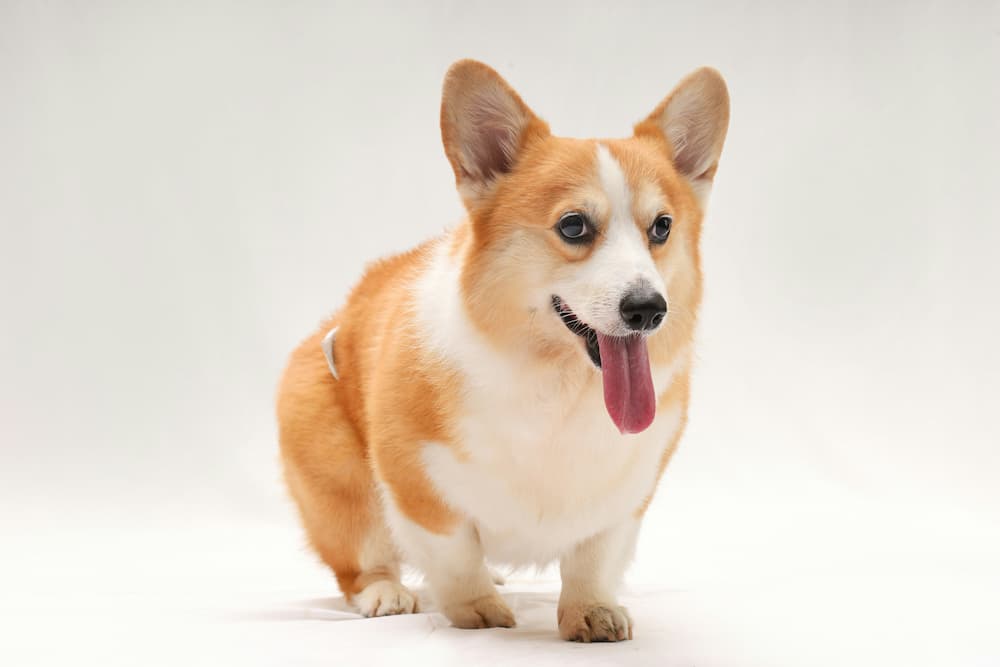Choosing the best dog food for dachshunds is more than just picking a popular brand—it’s about understanding the specific nutritional needs of this unique breed. With their long spines, short legs, and energetic personalities, dachshunds require specialized nutrition to maintain optimal health. In this comprehensive guide, we’ll explore everything you need to know to select the best food for dachshunds that supports joint health, maintains ideal weight, and promotes overall wellbeing.

What Do Dachshunds Need Nutritionally?
Dachshunds have distinct nutritional requirements directly related to their unique physique and breed tendencies. Understanding these needs is the first step in selecting the best dog food for dachshund companions:
Joint Support: Their long spines place extra stress on joints and vertebrae. Look for foods containing glucosamine and chondroitin, which support joint health and may help prevent intervertebral disc disease (IVDD), a common dachshund concern.
Weight Management: These small dogs gain weight easily, which exacerbates spinal stress. Opt for formulas with controlled calories and L-carnitine to support healthy metabolism.
Muscle Maintenance: Despite their size, dachshunds are muscular and energetic. They need high-quality protein (at least 25-30%) to maintain muscle tone without excess fat.
Digestive Health: Many dachshunds have sensitive stomachs. Formulas with prebiotics and probiotics can promote healthy digestion and nutrient absorption.
Dental Health: Small jaws are prone to dental issues. Kibble with specially designed pieces helps reduce tartar buildup.
How to Choose the Best Dog Food for Dachshunds?
Selecting the right food involves more than just reading labels. Here’s what to consider when choosing a good dog food for dachshunds:
Life Stage Appropriateness: Puppies, adults, and seniors have different nutritional needs. The best dog food for dachshund puppies supports healthy growth, while senior formulas focus on joint support and weight management.
Ingredient Quality: Look for high-quality animal protein as the first ingredient. Avoid fillers like corn, wheat, and soy, which offer limited nutritional value and may trigger allergies.
Breed-Specific Formulations: Some brands offer formulas specifically designed for dachshunds. Royal Canin’s dachshund-specific formula, for instance, features adapted kibble shape and size for easier eating.
Size-Appropriate Kibble: The best dog food for miniature dachshunds typically features smaller kibble size suited to their tiny jaws, while standard dachshunds may handle regular small-breed formulas.
Nutritional Balance: Ensure the food meets AAFCO (Association of American Feed Control Officials) standards for complete and balanced nutrition. The best dog food for mini dachshund options will specify which life stage they’re formulated for.
Best Dog Foods for Dachshunds
Based on nutritional expertise, ingredient quality, and breed-specific formulations, here are some top recommendations for the best dog food for dachshunds:
Royal Canin Dachshund Adult Dry Food: Specifically designed for dachshunds over 10 months old, this formula features an adapted kibble shape that makes picking up food easier for their narrow muzzles. It contains appropriate levels of calcium and phosphorus for bone health and includes glucosamine and chondroitin for joint support.
Chanbuyi Baked Dog Food: This formula features 82% animal-based ingredients with no grains or legumes, making it suitable for dachshunds with sensitive stomachs. It contains probiotics and prebiotics for digestive health and is baked at low temperatures to preserve nutrients. With 35% protein content and reduced fat levels, it supports muscle maintenance while helping prevent weight gain.
Pet Rate Grain-Free Dog Food: Containing 73% animal ingredients including fresh chicken, duck, and fish, this formula offers high protein content (33%) with moderate fat levels (17%). It includes added glucosamine and chondroitin (200mg/kg each) for joint support and omega-3 fatty acids (1.5%) for skin and coat health. The enzymatic hydrolysis process improves digestibility to 94.4%, making it easier for dachshunds to absorb nutrients.
Ledon Dog Food: Featuring 72.8% animal ingredients with fresh chicken and duck, this formula offers 32% protein with low salt content (0.59%) to help reduce tear staining. It includes probiotics and prebiotics for digestive health and uses freeze-dried coating on kibble to enhance palatability for picky eaters.
BHNW Dachshund Adult Wet Food: For those preferring wet food or using a mixed feeding approach, this specialized wet formula contains glucosamine and chondroitin sources with balanced nutrition specifically for dachshunds. At 79 kcal per package, it helps with portion control for weight management.

Feeding Guide: How Much and How Often Should Dachshunds Eat?
Feeding depends on calorie density of the food, life stage, activity level, and body condition:
Puppies: 3–4 small meals/day (higher calorie needs per lb).
Adults: 2 meals/day is a good routine—helps portion control and steady energy.
Seniors: 2 smaller, lower-calorie meals/day; watch muscle mass and appetite changes.
Use the caloric guideline on the bag as a starting point, then adjust by body condition score. If your Dachshund’s ribs are hard to feel or they have a pronounced waist loss, reduce intake and consult your vet. Weight control is crucial: extra pounds sharply increase spinal injury risk.
How to Transition to a New Food & What Mistakes Should You Avoid?
When switching to a new food, especially when finding the best dog food for dachshund puppies or seniors, gradual transition is essential to prevent digestive upset:
7-Day Transition Schedule:
Days 1-2: 25% new food, 75% current food
Days 3-4: 50% new food, 50% current food
Days 5-6: 75% new food, 25% current food
Day 7: 100% new food
Common Mistakes to Avoid:
Overfeeding: Dachshunds are prone to obesity, which exacerbates spinal issues. Measure portions accurately and avoid free-feeding.
Ignoring Treat Calories: Treats should constitute no more than 10% of daily calorie intake.
Raising Food Bowls: Contrary to popular belief, raised feeders may increase bloat risk in small breeds. Keep bowls at ground level.
Neglecting Dental Health: If feeding only soft food, incorporate dental chews or teeth-cleaning products to maintain oral hygiene.
Assuming “Grain-Free” is Always Better: Unless your dachshund has specific grain allergies, grains can be part of a healthy diet. Recent studies suggest some grain-free foods may be linked to heart issues in susceptible dogs.

Conclusion
Choosing the best dog food for dachshunds requires careful consideration of their unique anatomical and nutritional needs. The ideal formula supports joint health, maintains lean muscle mass, helps control weight, and promotes overall wellbeing. Whether you opt for a breed-specific formula like Royal Canin’s Dachshund formula or a high-quality general small breed food, prioritize ingredients that address your dachshund’s specific requirements.
Remember that individual dogs may have different needs based on age, activity level, and health status. Regular veterinary check-ups will help ensure your dietary choices continue to support your dachshund’s health throughout all life stages. The right nutrition investment can contribute significantly to your long-bodied companion’s quality of life and longevity.
FAQ
What is the best food for Dachshunds?
The best food for dachshunds is one that addresses their specific needs: joint support (with glucosamine and chondroitin), weight management, digestive health, and muscle maintenance. Breed-specific formulas like Royal Canin Dachshund Adult or high-quality small breed formulas with appropriate kibble size and nutritional profile are excellent choices.
Do Dachshunds need breed-specific dog food?
While not absolutely necessary, breed-specific dog food offers advantages for dachshunds. These formulas typically include joint-supporting nutrients, adapted kibble shape for their narrow muzzles, and optimized calcium-phosphorus ratios for bone health. The best dog food for miniature dachshunds might specifically target their even smaller size and metabolic needs.
Is grain-free a good idea for Dachshunds?
Only if your dog has a diagnosed grain allergy or intolerance. Grain-free diets are not automatically healthier and have been linked to concerns in some dogs; consult your vet before switching. Many dogs do well on grain-inclusive diets with quality carbohydrate sources like sweet potato or brown rice.
Should Dachshunds have dry or wet food?
Both can work. Dry kibble helps dental hygiene and is convenient; wet food helps picky eaters and increases hydration. Combining both can give variety and texture while keeping portion control. Ensure either option is complete & balanced and matched to calorie targets.
Visited 1 times, 1 visit(s) today




